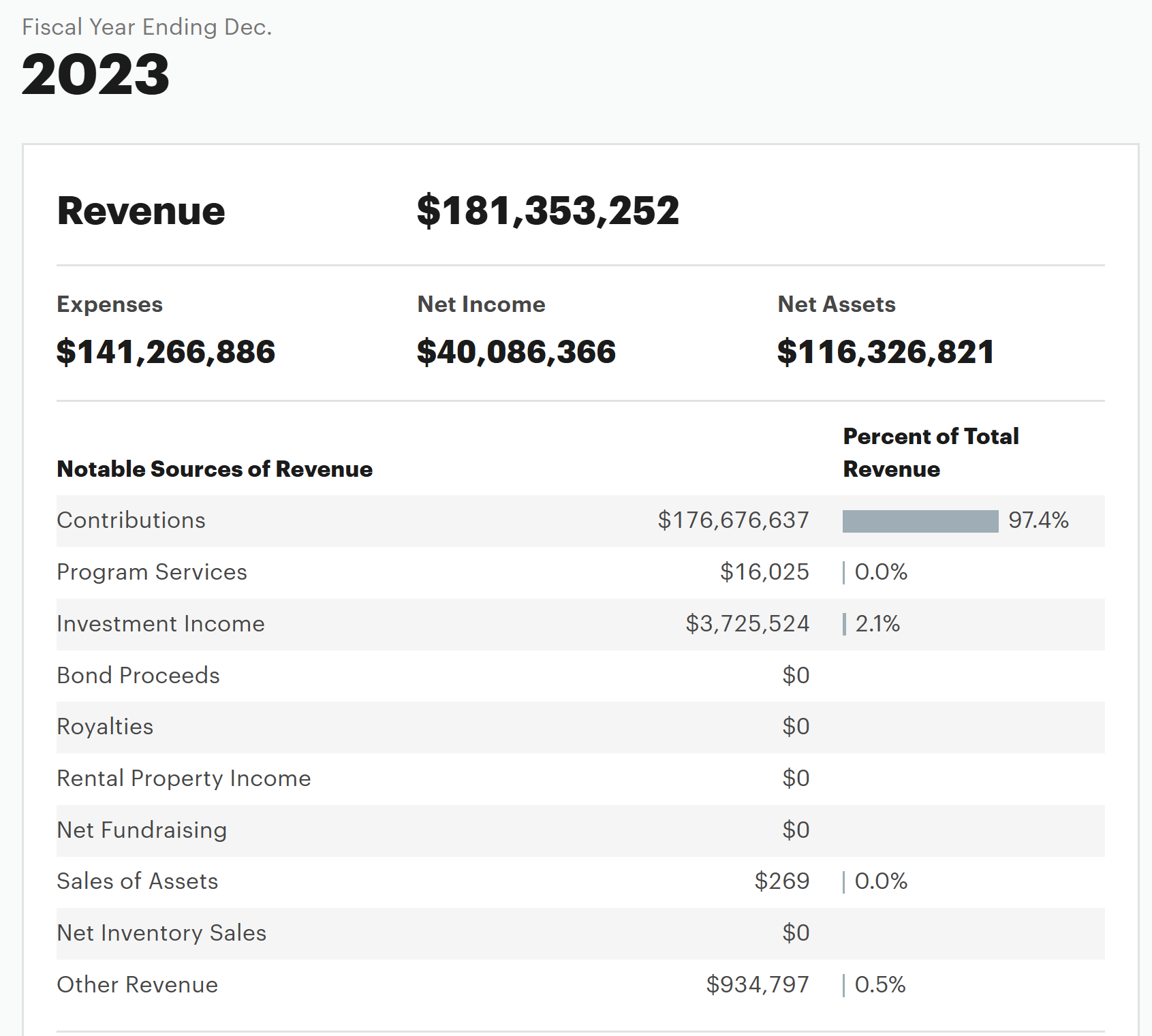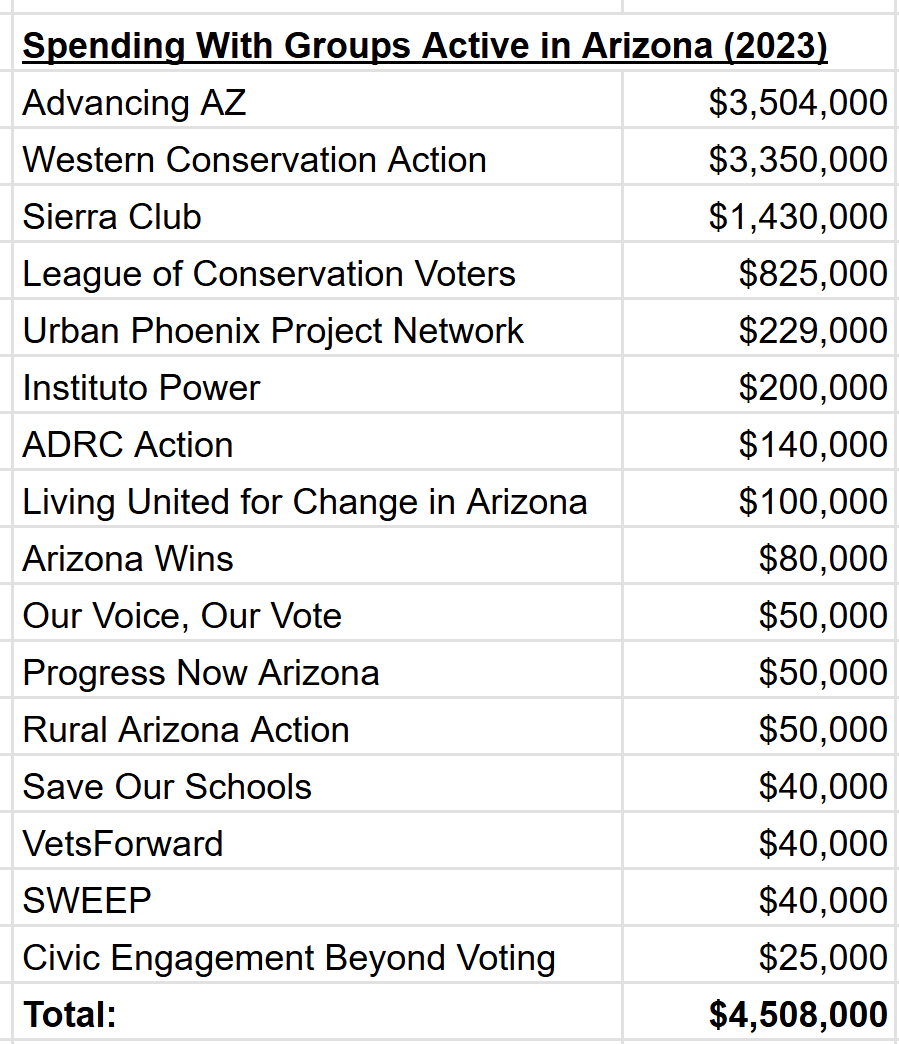Sixteen Thirty Fund
The Sixteen Thirty Fund is a Washington, D.C.–based nonprofit that plays a central role in a vast, secretive political spending network aligned with progressive causes. Officially registered as a 501(c)(4) social welfare organization, it operates under the radar through its affiliation with Arabella Advisors, a for-profit consulting firm that manages a constellation of politically active nonprofits. Despite promoting itself as a champion of progressive reform, critics argue that the fund functions as one of the most influential "dark money" vehicles in U.S. politics.
OVERVIEW
FUNDING
The fund does not disclose its donors, even as it pours hundreds of millions of dollars into political advertising, issue campaigns, and ballot measures nationwide. In 2020 alone, it raised nearly $390 million. Half of that total came from just four anonymous donors. This pattern of donor concentration has been consistent across multiple election cycles, with most funding coming from a small cadre of ultra-wealthy contributors. Notable among them is Swiss billionaire Hansjörg Wyss, who, although legally barred from donating directly to U.S. political candidates, has funneled an estimated $280 million through the Berger Action Fund into projects managed by the Sixteen Thirty Fund. Critics contend that this represents a significant loophole in campaign finance law, enabling foreign influence in domestic politics via ballot initiatives.
The fund’s strategy relies heavily on the creation of local-sounding, issue-specific front groups. These pop-up entities—such as “Arizonans United for Health Care” or “Michigan Families for Economic Prosperity”—carry out targeted campaigns but do not file separate tax returns. Their finances are fully consolidated under the Sixteen Thirty Fund’s single IRS filing, effectively concealing individual activities and making public oversight nearly impossible. This fiscal sponsorship model allows for rapid deployment of media campaigns and advocacy efforts while shielding the financial and strategic details from scrutiny.
Its political spending has reached extraordinary levels. In 2020, the fund spent approximately $410 million—more than the Democratic National Committee. In 2022, it spent another $196 million, with slightly less in 2023. Much of this money went toward attacking Republican candidates, promoting Democratic-aligned policies, and influencing state-level ballot initiatives. Critics view this kind of financial firepower, coming from a small group of elite donors, as an affront to the democratic principle of equal political participation.
Arizona provides a clear example of how the Sixteen Thirty Fund operates. Between 2020 and 2022, it funneled around $14 million into a project called Advancing Arizona, which aggressively targeted Republican Senator Martha McSally with attack ads and public events. One such stunt included a mock town hall, where a Democratic congressman stood in for McSally to take constituent questions. She ultimately lost her race by about 79,000 votes. In 2024, the fund contributed $1.25 million to a campaign supporting Proposition 139, a constitutional amendment that enshrined abortion rights in Arizona. That measure passed with over 61% of the vote. Though legally permitted for ballot measures, this type of spending has drawn increased scrutiny, especially when fueled by foreign-linked donations.
Overall, the Sixteen Thirty Fund is not a grassroots force, but a centralized, elite driven machine that attempts to drive progressive outcomes in American politics from behind a veil of non-profit status and anonymity.
SPENDING
Board of Directors
Raul Avillar, Chair
Dara Freed, Treasurer
Douglas Hattaway, Secretary
Marissa Brown
Jeff Cherry
Latoia Jones
Eric Kessler
Amy Kurtz, President
Ryan Johnson, Project Director
Amy Steinhoff, Campaigns Director
Carl Walz, Campaigns Director
Patricia Kupfer, Campaigns Director
Nilofar Ganjaie, Project Director



